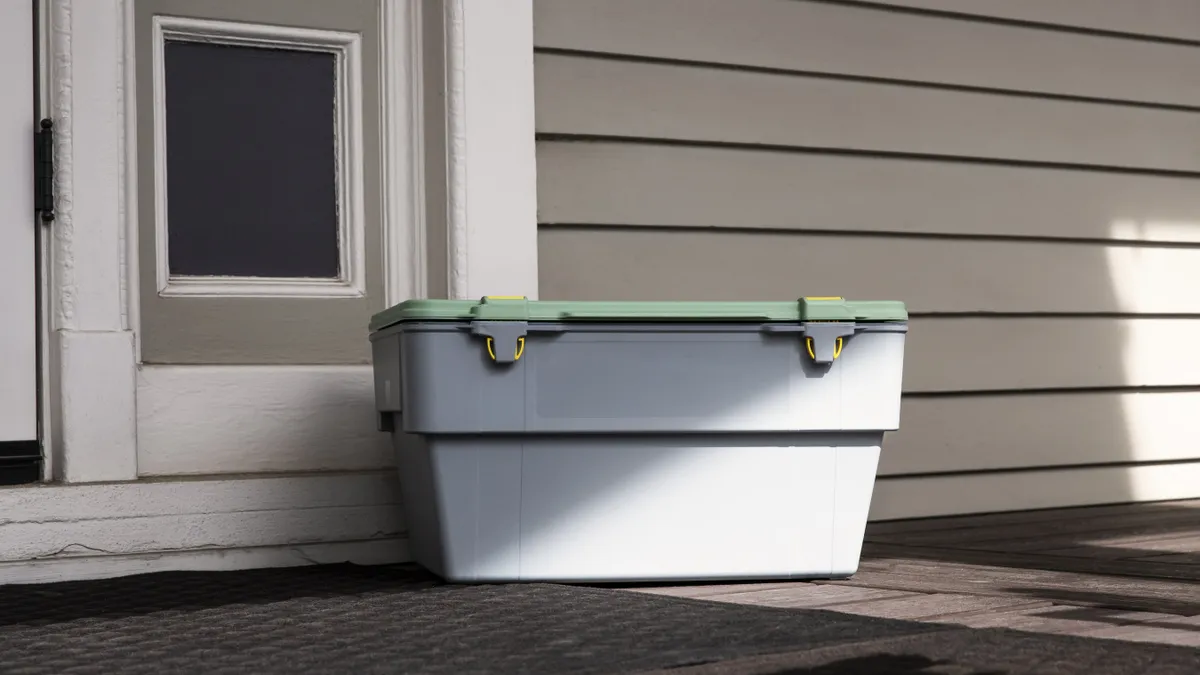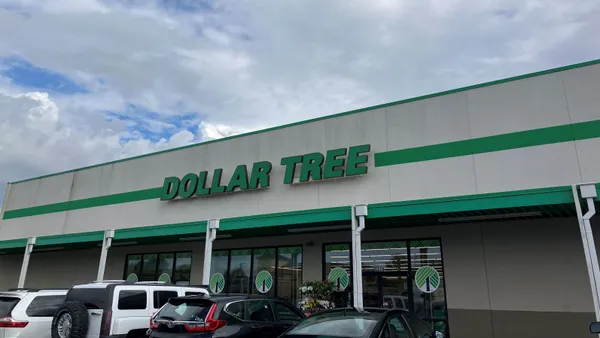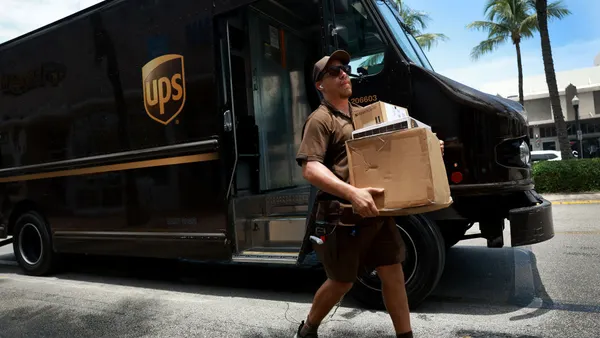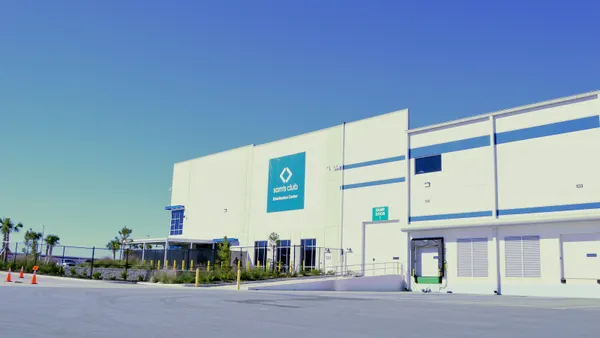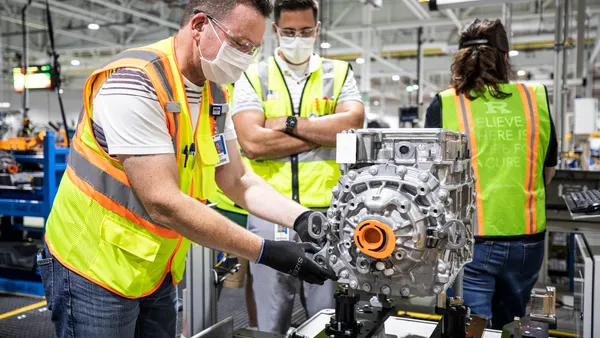Dive Brief:
- Otter Products, a company best known for making cell phone cases, has launched a new brand aimed at reducing packaging waste from meal-kit delivery services, according to a company release. Liviri shipping containers are reusable and have insulation built into them to eliminate the need for disposable ice packs.
- Once delivered, the Liviri boxes are returned to the meal kit company where they are cleaned, refilled and used for delivery again. This cycle can happen up to 75 times.
- Liviri is working with partners on the process of collecting and cleaning the boxes. Last-mile providers may be able to save a trip by picking up the empty packages when making a new delivery, Fast Company reported. Return shipping labels would be included with deliveries according to the release.
Dive Insight:
The global meal kit market was valued at $2.5 billion in 2017 and is expected to reach $8.9 billion by 2025, according to Hexa Research. Yet the kits have an image problem when it comes to packaging waste. Most come in a cardboard box filled with insulation, ice packs and plastic bags. Ingredients are often individually wrapped and packaged, leaving behind a pile of material that can turn off many eco-aware diners.
Companies are working to improve their image. Last fall, HelloFresh took steps toward more sustainable packaging by replacing the Styrofoam liners of its boxes with a recyclable material. HelloFresh claims the change will divert 15,000 tons of packaging waste from landfills every year. Around the same time, Purple Carrot changed its packaging to make it 100% recyclable. SPUD, a Canadian meal kit brand, is using insulated, reusable bags for its kit delivery and charging a $3 deposit to make sure customers return them.
Shifting consumer sentiment is driving the sustainability changes across the grocery industry. Trader Joe’s pledged to introduce more recyclable and renewable packaging to its stores earlier this year after a petition on Change.org racked up signatures. Walmart also announced a plan to reduce plastic waste and boost recycling, and Kroger’s Zero Hunger, Zero Waste initiative includes a plan to phase out all single-use plastic bags by 2025.
Liviri has also positioned its boxes as a safeguard to ensure meal kit ingredients stay cool. A 2017 study found that half of meal kits surveyed reached consumers at temperatures above 40 degrees, making many perishable ingredients unsafe to eat.
Although Liviri’s boxes will cost meal kit companies more upfront than the usual cardboard box, eventually they will pay for themselves, according to the company. Jim Parke, CEO of Otter Products, says the boxes will help companies with customer retention, as well.
“We’ve got good consumer research that shows that [waste] is actually a limiting factor in people’s willingness to engage, and to continue on after they started a subscription meal service,” he told Fast Company.
Still, Liviri will likely have its work cut out for it convincing cash-strapped meal kit companies to pay more upfront and potentially shift their supply chains. Consumers may also balk at the new process, despite their professed desire for more sustainable options.


